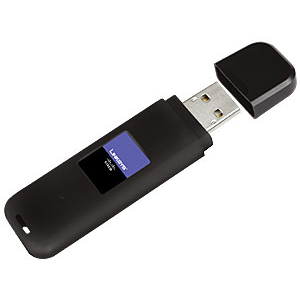Website Security
Hackers are constantly attacking websites and one day, even if your site is not experiencing huge traffic levels, a hacker might come calling at your door to test your security levels. How do you stop them from gaining access and possibly taking control of your website?
Passwords
Your site admin must have a strong password - never 'password' or other obvious words. A medium strength password will include a combination of numbers and letters, ideally using upper and lower case letters. Make it stronger by including other characters, such as @ -? etc. Anything that you can add that means your password is not a straight forward word or two can really improve it.
Ideally, also sign on with a user name that is not obvious - not 'admin', 'administrator' and so on. This way the hacker must guess user name and password. And if you can move your administration area to an unusual directory, then the hacker might not even be able to find it!
Watch what is happening
Monitor failed logon attempts to the admin and maybe close it down if there are too many. Be on the look out for multiple failed attempts from the same IP address and multiple failed attempts on the same user name. Hackers might use networks of computers to constantly submit different passwords to your admin and if these are hijacked computers, they will have different IP addresses, but they will all attack the same userid.
Be alert to traffic patterns
Watch your traffic stats for sudden interest in pages, especially pages that shouldn't be there and protect the code from SQL injection. And if any part of your website is uploading files then validate the format. I like to check that images are a valid image format and then put them through a resize algorithm. That way php / asp files cannot be uploaded and ran should a hacker gain entry to an admin system.
SQL injection
This is a popular way of reading your tables and trying to find out if you have passwords stored there and other malicious tricks, such as uploading content to your pages. Make sure that you use correct escape routines to remove any attempts to inject SQL into your code and on pages where all that is needed is a read only access, just use a read only user id. Then if someone slips in extra code the potential damage might just be limited.
You can also validate inputs to prevent SQL injection. For example, if you are expecting to be passed an id that is an integer, then test that it is an integer. If not, then I like to just exit the code immediately so that there are no extra clues given and the page stops loading immediately.
Passwords
Your site admin must have a strong password - never 'password' or other obvious words. A medium strength password will include a combination of numbers and letters, ideally using upper and lower case letters. Make it stronger by including other characters, such as @ -? etc. Anything that you can add that means your password is not a straight forward word or two can really improve it.
Ideally, also sign on with a user name that is not obvious - not 'admin', 'administrator' and so on. This way the hacker must guess user name and password. And if you can move your administration area to an unusual directory, then the hacker might not even be able to find it!
Watch what is happening
Monitor failed logon attempts to the admin and maybe close it down if there are too many. Be on the look out for multiple failed attempts from the same IP address and multiple failed attempts on the same user name. Hackers might use networks of computers to constantly submit different passwords to your admin and if these are hijacked computers, they will have different IP addresses, but they will all attack the same userid.
Be alert to traffic patterns
Watch your traffic stats for sudden interest in pages, especially pages that shouldn't be there and protect the code from SQL injection. And if any part of your website is uploading files then validate the format. I like to check that images are a valid image format and then put them through a resize algorithm. That way php / asp files cannot be uploaded and ran should a hacker gain entry to an admin system.
SQL injection
This is a popular way of reading your tables and trying to find out if you have passwords stored there and other malicious tricks, such as uploading content to your pages. Make sure that you use correct escape routines to remove any attempts to inject SQL into your code and on pages where all that is needed is a read only access, just use a read only user id. Then if someone slips in extra code the potential damage might just be limited.
You can also validate inputs to prevent SQL injection. For example, if you are expecting to be passed an id that is an integer, then test that it is an integer. If not, then I like to just exit the code immediately so that there are no extra clues given and the page stops loading immediately.

